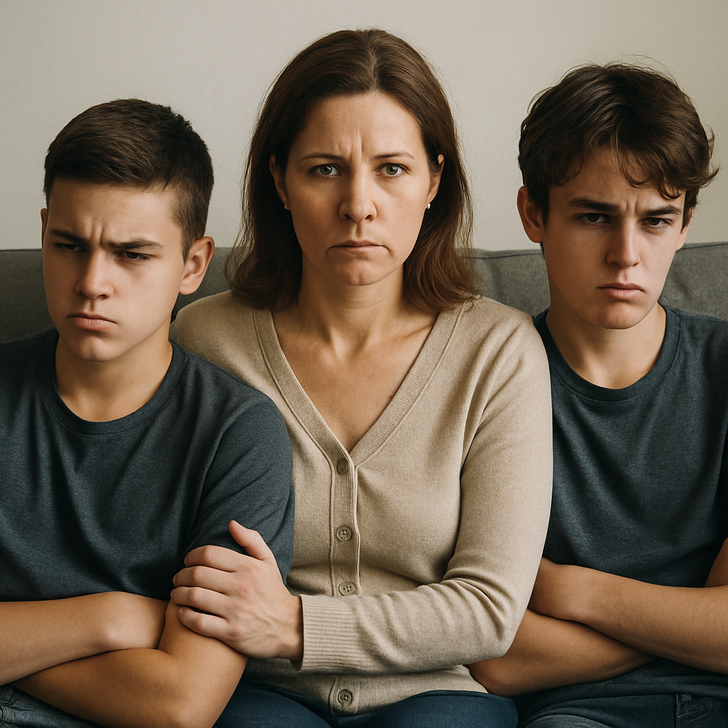
One of our readers reached out with a story that stopped us in our tracks — a raw, complicated moment where a mother had to make the hardest call of her life. It’s about love, loyalty, and the gut-wrenching reality that sometimes protecting one child can mean losing another. Her words are a reminder that parenting isn’t always about picture-perfect family moments — sometimes it’s about standing your ground, no matter the fallout.
Here is her letter.

When my husband’s 15-year-old son, Ryan, moved in, I thought we’d learn to get along. But over time, he started targeting my 14-year-old, Noah — teasing him about his stutter, mocking him in front of friends, even hiding his school projects so he’d fail.
I tried talking to my husband, but he brushed it off as ‘boys being boys.’ Then one night, I overheard Ryan tell Noah, ‘Your dad’s gone, and soon your mom will get rid of you too.’
Noah’s face crumpled. That was it. I told Ryan to pack his bags and go to his mom’s that night. My husband yelled, said I was ‘tearing the family apart,’ but my son’s safety — emotional and physical — comes first.
Months later, Ryan sent a single text: ‘I was just angry Dad left me. Sorry, I took it out on him.’
It didn’t erase what happened. Sometimes protecting one child means losing another.
Anna S.”
Expert tips

Stepparenting without double standards
Many stepparents try to avoid favoritism by holding stepchildren to the same rules and expectations as their own kids. It’s a well-intentioned approach, but it can backfire when children come from households with very different norms.
If a stepchild isn’t used to certain boundaries — like earning dessert by finishing vegetables — they may see equal treatment as unfair treatment. What feels like consistency to you can feel like punishment to them, especially if it contrasts sharply with their previous experience.
Lasting family harmony comes not from treating everyone exactly the same, but from making each child feel equally respected, valued, and safe.


